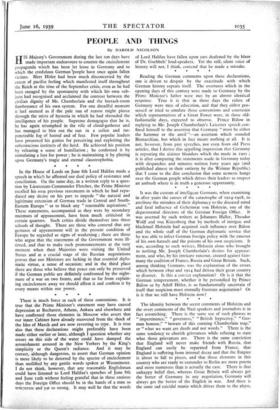It was the custom of intelligent Germans, when examining in
after years the causes of the catastrophe of 1914-1918, to attribute the mistakes of their diplomacy to the diseased mind and fatal influence of Geheimrat von Holstein, one of the departmental directors of the German Foreign Office. It was asserted by such writers as Johannes Haller, Theodor Wolff and von Kurenberg that by methods of intrigue and blackmail Holstein had acquired such influence over Billow and the whole staff of the German diplomatic service that he was able to infect German foreign policy with the rancour of his own hatreds and the poisons of his own suspicions. It was, according to such writers, Holstein alone who brought to nothing Mr. Joseph Chamberlain's desires for appease- ment, and who, by his intricate rancour, created against Ger- many the coalition of France, Russia and Great Britain. Such, among thinking Germans, was the explanation of the errors which between 1890 and 1914 had driven their great country to disaster. Is this a correct explanation? Or is it that the German temperament, whether it be personified by Prince Bulow or by Adolf Hitler, is so fundamentally uncertain of itself that suspicion must eternally frustrate negotiation? Or is it that we still have Holstein now?






















































 Previous page
Previous page